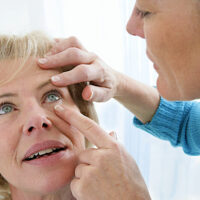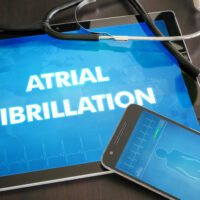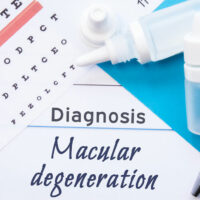11 foods to avoid before bedtime

For those experiencing trouble sleeping, it might not be just excess screen time or stress causing problems. Some things as simple as what one chooses to eat right before heading to bed may be affecting one’s circadian rhythm. There are several foods that are popular for providing comfort, but these very items may be preventing one from a restful sleep. Thus, here are some of the common foods to avoid before bedtime.
Coffee
The high percentage of caffeine in coffee makes it one of the worst foods one can have before bed. Caffeine is a well-known stimulating substance that excites the central nervous system, even several hours after consuming it. The effects can last from 8 to 14 hours, making one stay awake. So before drinking a cup of coffee, make sure to keep the bedtime in mind. The best time to have coffee or any caffeinated beverage is at least 8 hours before going to sleep.
Potato chips
Having a comfort snack such as potato chips right before going to bed may seem to make one feel relaxed. However, as much as this snack may produce some serotonin in the brain, it may end up disrupting sleep. This is because potato chips have a high amount of unhealthy fats and sodium. These not only increase blood sugar levels, cholesterol levels, and blood pressure levels, but also cause indigestion and acid reflux. All of these factors can affect one’s sleep cycle.
Donuts
If those sweet cravings hit before bedtime, donuts would be the worst choice to satiate them. These are full of fats and sugar. The high amount of sugar can spike up the blood glucose level, leading to a sudden energy crash right before one hits the bed. This can disrupt sleep patterns. Also, the excess fats in the donuts can cause issues with the digestive system, making one stay awake at night.
Oranges
One of the richest sources of vitamin C, oranges are a healthy addition to one’s regular meals. However, these should not be had before bedtime. The high percentage of acid in this citrus fruit may cause acid reflux. Also, it can trigger a sensitive bladder, making one get up through the night frequently to go to the bathroom. Therefore, oranges must be avoided before heading to bed at night.
Tomatoes
Packed with lycopene, tomatoes are quite versatile and form the base of many cuisines worldwide. But, it is best to avoid adding tomatoes to meals that one has before going to bed. This is because tomatoes contain tyramine, which is a type of amino acid. It stimulates brain activity, making it difficult to fall asleep. In addition, tomatoes have a high level of acid, which can cause acidity and bloating, disrupting the sleep cycle.
Chocolate
It may seem tempting to have a chocolate treat after dinner at the end of the day, but if one wants to have a restful sleep, the chocolate won’t help. The high caffeine content in dark chocolate increases arousal levels, stimulates the brain, and lowers one’s ability to sustain REM sleep. Basically, a piece of 70% dark chocolate will prevent the body from shutting down for rest. If one still wants to indulge in this sweet treat, it is recommended to have it earlier in the night or reduce the portion significantly.
Cheese
For those with any level of intolerance or allergy to dairy-based foods, cheese can easily disrupt sleep if it is had before bedtime. It can cause inflammation, bloating, and gas, which can make one feel a lot of pain and discomfort. This discomfort makes it difficult to fall asleep. Whether one has dairy intolerance or not, some types of cheeses need to be avoided before bedtime, including all kinds of aged cheeses. These contain tyramine, which increases the level of norepinephrine in the brain, keeping it active for a long time. It increases the level of alertness and brings down sleep quality. Thus, it helps to save the favorite gouda cheese for breakfast and instead opt for crumbly feta, goat’s cheese, or halloumi for dinner.
Hot peppers and spicy foods
Foods that are high in spice content can help in improving metabolism and fight off infections. While there are a lot of health benefits to eating hot peppers and other spices, these must be avoided during meals that one has before bedtime. Most of these spices, such as hot peppers and cayenne, contain capsaicin, which can cause acid reflux and heartburn. Also, it can increase the overall temperature of the body. All of these factors may make one stay awake and struggle to fall asleep.
Dried fruit
Dried fruits such as dates, apricots, and raisins contain a high level of fiber. While this is good for the digestive system and gut health, the high amount of fiber can cause problems during sleep. If one ends up having a handful of dried fruits before bed, there is a high probability of cramps and gas developing in the stomach. This will disrupt one sleep cycle.
Pizza
Eating a slice of pizza might be one of the most convenient ways to satisfy late-night snack cravings. But it can leave one without sleep for the rest of the night. The tempting combination of cheese and tomato sauce can lead to acidity, gas, and bloating. Also, the high amount of carbs from the pizza base takes a lot of time to digest, which can further aggravate discomfort. These can have a negative impact on sleep quality, leaving one feeling tired the next morning.
Peppermint
Mint has several health benefits. But these benefits do not include a good night’s sleep. It can cause mild to severe heartburn, causing trouble while one is trying to fall asleep. So, one must keep away from after-dinner mints before bedtime. Also, peppermint tea is best avoided at night if one wants a restful sleep.





